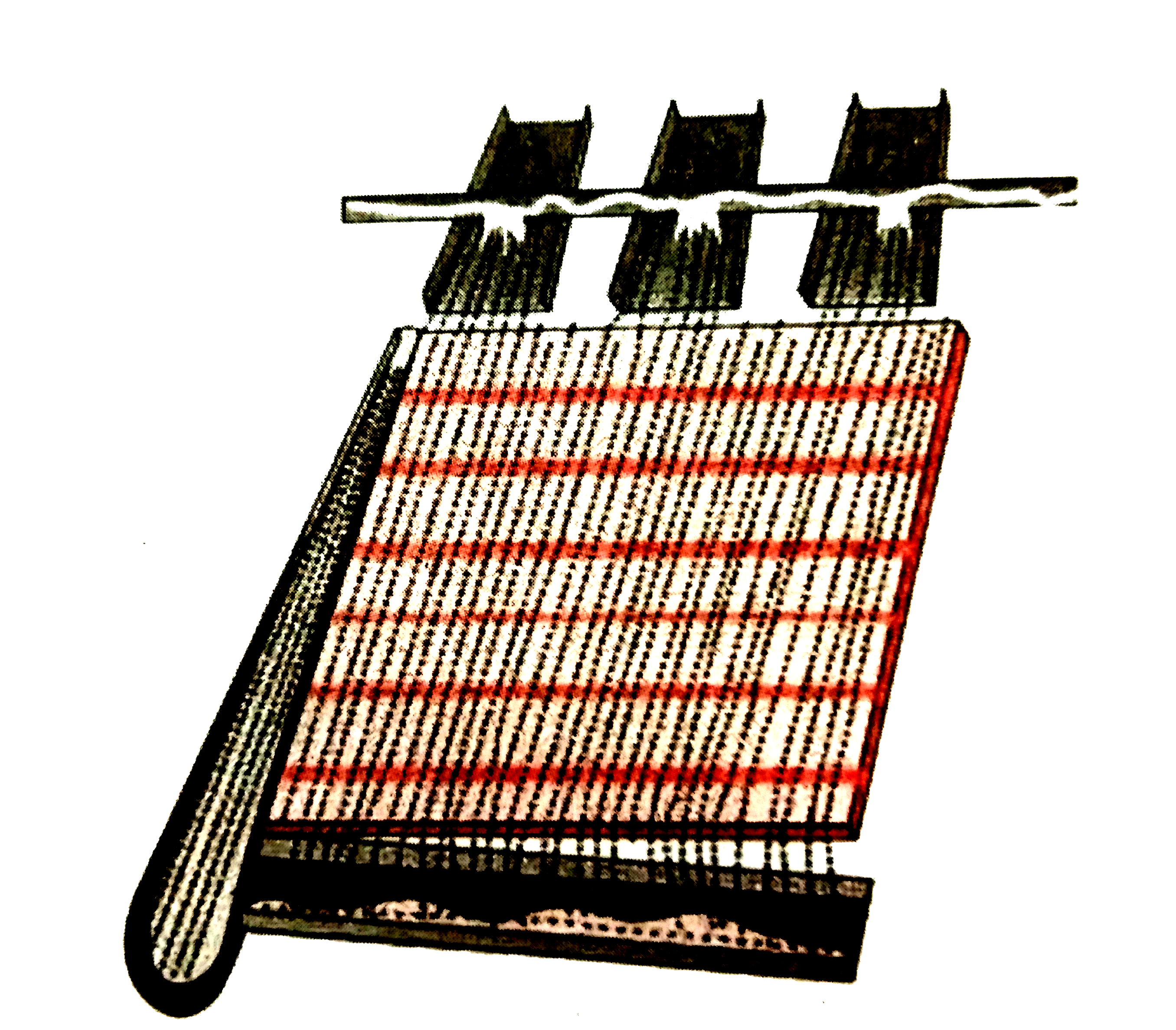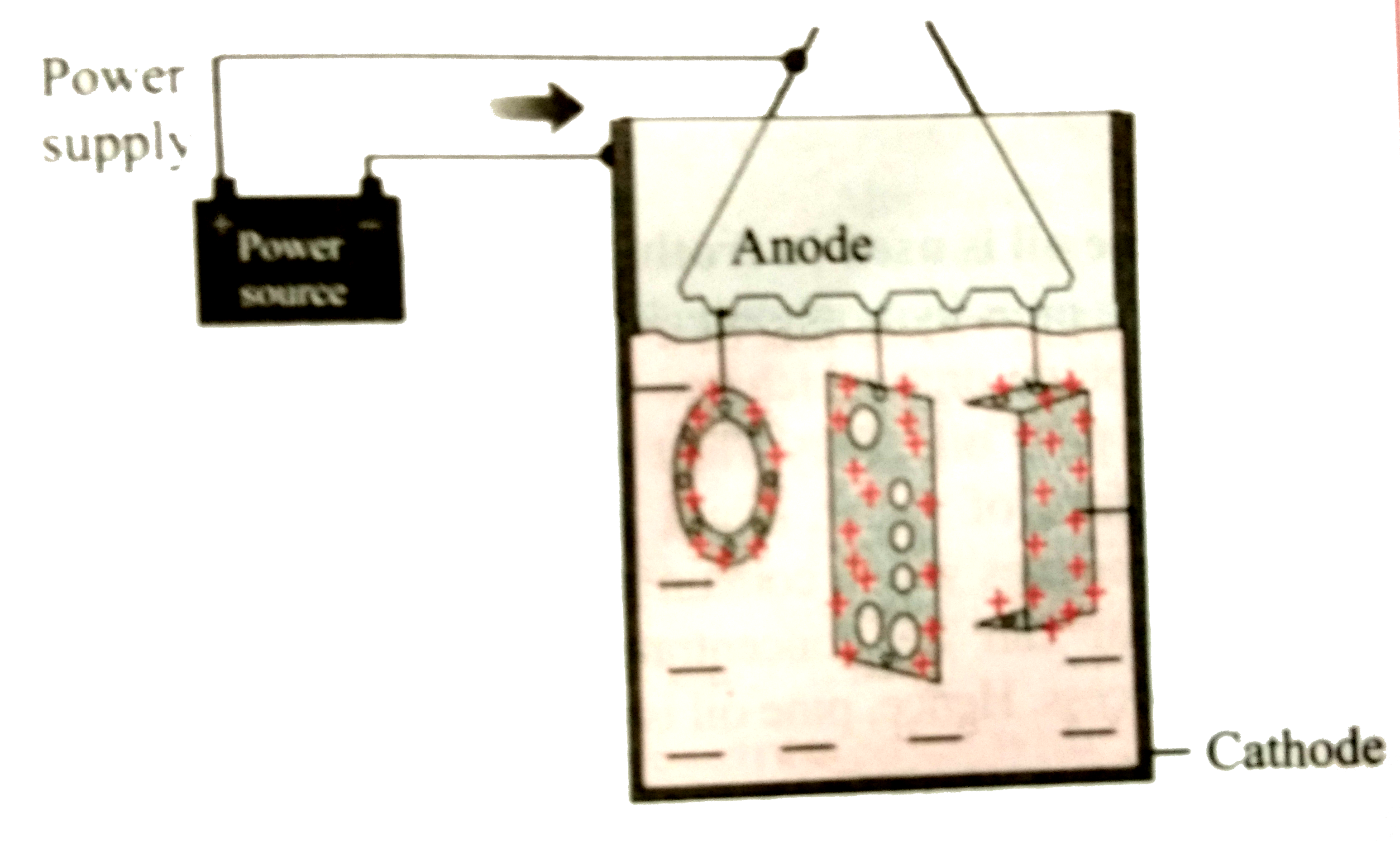Complete Solutions to ANSWER THE FOLLOWING of chapter METALLURGY of Class 10 book with complete answers and questions
| Class 10 | CHEMISTRY |
| Chapter | METALLURGY |
| TARGET PUBLICATION | ANSWER THE FOLLOWING |
| Number Of Questions | 69 |
| Academic Year | 2023-24 |
Give examples of any two metals which exist as liquid under the normal condition
View SolutionExplain the following:
What are the properties of metals and Non-metals?
View SolutionExplain the terms malleable and ductile with examples.
View SolutionName the allotropes of carbon .
View SolutionOut of sodium and sulphur which ls a metal? Explain its reaction with the oxygen.
View SolutionName two metals which react violently with cold water. Write any four observations you would make when such a metal is dropped into water.
View SolutionWhy are metals called electropositive elements ?
View SolutionAre all the metals equally reactive?
View SolutionWhat is aqua regia? How is it prepared?
View SolutionArrange the following metals in the order of their decreasing reactivity: Aluminium, gold, sodium, copper
View SolutionDivide the metals Cu, Zn, Ca, Mg, Fe, Na, Li into three groups, namely reactive metals, moderately reactive metals and less reactive metals.
View SolutionWhich metal is more reactive, copper or iron?
View SolutionName one metal which can displace hydrogen from dilute acids and one metal which cannot.
View SolutionWhat will you observe when zinc granules are added to ferrous sulphate solution? Write the chemical reaction involved.
View SolutionA solution of ferrous sulphate was kept in an aluminium can. After few days, the can was found to have a number of holes in it. Explain the observation and write the chemical equation involved.
View SolutionExplain the following:
When a copper coin is dipped in silver nitrate solution, a glitter appears on the coin after some time, Why does this happen? Write the chemical equation.
View SolutionWhy cannot each metal react to its own salt?
View SolutionExplain the following:
The electronic configuration of metal A is 2,8,1 and that of metal B is 2,8,2. Which of the two metals is more reactive? Write their reaction with dilute hydrochloric acid.
View SolutionA nonmetal 'X' is an important constituent of all living organisms and it forms two oxides Y and Z which are gases. Y is toxic while Z is responsible for global warming. Identify X, Y and Z.
View SolutionIn the reaction between chlorine and HBr transformation of HBr into Br_2 takes place. Can this transformation be called oxidation? Which is the oxidant that brings about this oxidation?
View SolutionState two important factors responsible for a certain crystal structure in ionic compounds
View SolutionState any four properties of Ionic compounds
View SolutionWhy are ionic compounds solid and hard at room temperature?
View SolutionGive examples of any two metals which are generally found in the free state in nature.
View SolutionAluminium occurs in combined state whereas gold is found in free state in nature. Why?
View SolutionExplain the terms :
Metallurgy
View SolutionExplain the terms :
Ores
View SolutionExplain the terms :
Minerals
View SolutionExplain the terms :
Gangue
View SolutionWrite a short note on concentration of ores.
View SolutionLabel the diagram given below and explain it

View SolutionExplain hydraulic separation method with neat and labelled diagram
View SolutionA tapping vessel opens in a tank like container that is tapering on the lower side. The tank has an outlet for water on the upper side and a water inlet on the lower side. Finely ground ore is released in the tank. A forceful jet of water is introduced in the tank from lower side and gangue particles and pure ore are separated by this method.
i. The above description is of which gravitation separation method?
ii. Draw labelled diagram of this method.
View SolutionDescribe magnetic separation method with the help of labelled diagram. Also explain how cassiterite ore is concentrated by this method.
View SolutionWith neat and labelled diagram, explain froth floatation method.
View SolutionWhat is the difference between magnetic separation method and froth floatation method?
View SolutionWrite a short note on leaching.
View SolutionName the chemical process used for obtaining a metal from its oxide.
View SolutionAnswer the following in one or two sentences
What is the electronic definition of oxidation and reduction?
View SolutionWrite a short note on: Extraction of highly reactive metals.
View SolutionGive four examples of highly reactive metals.
View SolutionWrite the electrode reaction for electrolysis of molten magnesium chloride and calcium chloride
View SolutionDescribe Bayer's process for concentration of bauxite ore.
View SolutionExplain Hall's process used for concentration of bauxite ore.
View SolutionDescribe the electrolytic reduction of alumina with neat labelled diagram
View SolutionComplete the following statement using every given options.
During the extraction of aluminium_____
Ingredients and gangue in bauxite
View SolutionAnswer the following in one or two sentences
What are the moderately reactive metals?
View SolutionAnswer the following in one or two sentences
In which form do the moderately reactive metals occur in nature?
View SolutionGive scientific reasons:
Carbonate and suphide ores are usualy converted into oxides during the process of extraction
View SolutionMention the steps carried out for the extraction of zinc from its carbonate ore. Write the chemical reactions involved.
View SolutionDistinguish between
Calcination and roasting.
View SolutionGive any four examples of moderately reactive metals.
View Solution`3MnO_2 + 4Al to 3Mn + 2Al_2O_3` + Heat
Identify the substances undergone oxidation and reduction in this reaction
View SolutionExplain thermit reaction and give its uses.
View SolutionExplain the steps involved in the extraction of copper from its sulphide ore. Write the balanced equations involved.
View SolutionDraw a concept map to show the steps to extract metals of medium and low reactivity from their sulphide ores
View SolutionState the difference between highly reactive metals and less reactive metals.
View SolutionGive two examples of less reactive metals
View SolutionWhat is refining of metals?
View SolutionWhy do new iron sheets appear shiny?
View SolutionWhat is galvanization? What purpose is served by it?
View SolutionWrite a short note on: Tinning
View SolutionWrite a note based on the diagram given below.

View SolutionExplain the term: Electroplating
View SolutionIn two methods of control of corrosion of aluminium, either a layer of aluminium oxide is formed or a silver plating is done on the surface. State to which electrode the aluminium article is attached in these methods respectively
View SolutionWhat is an alloy ? Give two examples of alloys
View SolutionAlloys are prepared by mixing a metal with other metals or nonmetals in certain proportion. The properties of the main metal change when the metal is alloyed.
i. How do the properties of iron change when carbon and chromium are mixed with it?
ii. How do the properties of copper change when tin is mixed with it?
View SolutionGive examples of alloys containing mercury.
View SolutionGive uses of alloys containing mercury
View Solution
ANSWER THE FOLLOWING questions and complete solutions for chapter METALLURGY of TARGET PUBLICATION of Class 10
All Exercises from TARGET PUBLICATION Class 10 CHEMISTRY METALLURGY
- ANSWER THE FOLLOWING
- APPLY YOUR KNOWLEDGE
- CHAPTER ASSESSMENT
- CHOOSE THE CORRECT ALTERVATIVE
- COMPLETE THE ANALOGY
- COMPLETE THE GIVEN CHART/TABLE
- COMPLETE THE PARAGRAPH
- DISTINGUISH BETWEEN
- GIVE BALANCED CHEMICAL EQUATION
- GIVE REASONS
- MATCH THE FOLLOWING
- NAME THE FOLLOWING
- ODD ONE OUT
- QUESTION BASED ON DIAGRAM
- QUESTION BASED ON PARAGRAPH
- TRUE OR FALSE.